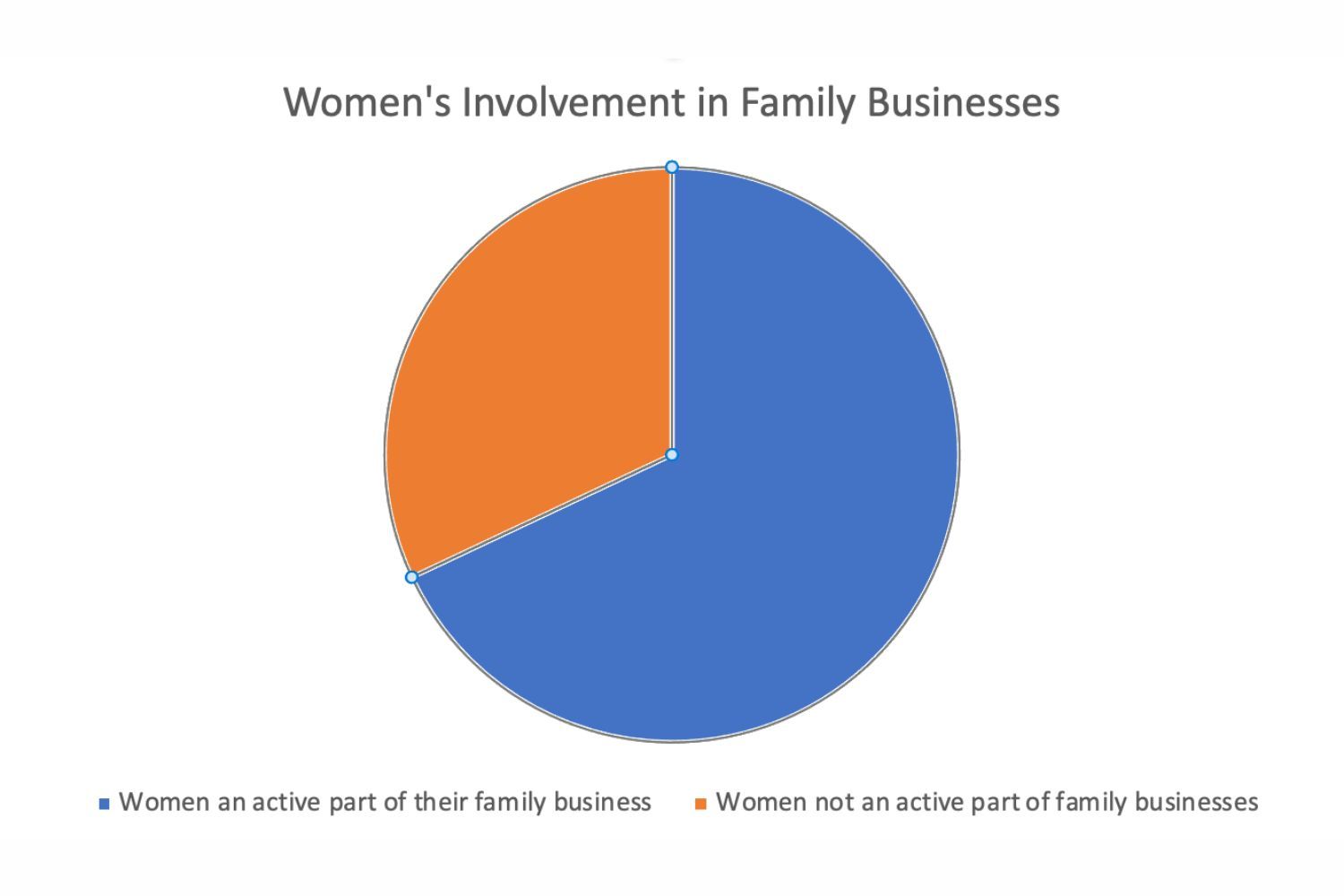Leadership Insights
Women in India Leading the Charge in Family Businesses

In the heart of India's economic engine, family enterprises have long stood as bastions of tradition and continuity, shaping industries and legacies for generations. Companies like TATA and Reliance serve as the backbone of various sectors, driving innovation, creating employment opportunities, and fostering economic resilience.
Dominating the corporate landscape, families maintain a firm grip on most businesses, with a staggering 75% ownership across all scales—from small and medium-sized enterprises (SMEs) to sprawling conglomerates. Patriarchal structures have traditionally been synonymous with tradition and continuity, family-owned businesses in India since the 1980s, where familial ties dictate the corporate hierarchy.
However, with the dawn of a new era, women step boldly into the spotlight, challenging age-old norms and reshaping the essence of business ownership and governance.
Renowned for their ability to balance economic objectives—contributing to the family’s financial wealth—and non-economic pursuits that enrich the family’s socio-emotional wellbeing, this equilibrium was further enhanced when, in 2013, the law mandated listed companies to appoint at least one female director, significantly boosting gender diversity in company board rooms.
Today, daughters and daughters-in-law boldly take the reins of leadership, steering family businesses and bringing new perspectives and energy.
From Supportive Roles to Leadership Positions: Tracking the Shift
After the landmark year of 2013, a shift reverberated through the corporate landscape, particularly within family businesses. Family businesses began actively scouting for daughters and daughters-in-law to take on prominent roles, recognising the unique perspectives, skills, and capabilities they bring to the table.
In 2014, India reported that 80 women directors were appointed in 85 companies listed on the National Stock Exchange (NSE). Approximately 50 of these appointments were classified as independent directors. In contrast, 40 women were appointed directors during the same timeframe in the preceding year.
Out of these appointments, the majority were in family businesses, which actively involved their women family members, including wives, daughters, and daughters-in-law, in key leadership roles. Nita Ambani's appointment to the board of Reliance Industries marked a notable addition among several members of business families who assumed board positions in recent months. Prominent family-owned businesses, such as those represented by Sarala Birla (Century Textiles, Century Enka), Bina Modi (Godfrey Phillips), Deepshikha Khaitan (Cera Sanitaryware), and many more appointed women to key leadership positions.
Fast-forward almost a decade, and the India: State of Family Business Report 2023 uncovered compelling insights into the evolving landscape of family enterprises. A notable revelation emerged among the 357 family businesses surveyed: a substantial majority, accounting for 68%, showcased the active involvement of women's family members. Among these, nearly 40% boasted women as proprietors, while a majority (54.7% or 133 out of 243) had women family members actively engaged in business management roles.

However, the dynamics of women's experiences within family businesses in India diverge significantly from those in Western contexts. In India, the experiences of women navigating familial enterprises are shaped by a myriad of factors, including social norms, cultural traditions, economic conditions, institutional frameworks, geographical contexts, and generational dynamics. These diverse influences contribute to a broad spectrum of experiences for women in India across different regions, communities, and socio-economic backgrounds.
Distinct regional disparities were evident, shedding light on varying degrees of women's involvement in family businesses across India. The southern region emerged as a standout, with the highest level of active participation among women members, reaching an impressive engagement rate of 97.8%. In contrast, businesses in the western region reported a significantly lower proportion, at only 41 per cent. Similarly, family businesses in the northern and eastern regions demonstrated intermediate levels of women's participation, with percentages of 70 and 59 per cent, suggesting a complex interplay of socio-cent, respective cultural and economic factors influencing women's roles within family businesses.
Adapting to Progress: Women Taking the Lead in Business
Women’s roles in family businesses are changing. This shift symbolises a meaningful step forward as women assert their rightful place and take the reins in shaping the future of business leadership, ushering in an era of greater gender diversity and inclusivity within corporate boardrooms.
The evolution of women's roles within family businesses is evident in significant appointments such as those at Reliance, India's foremost private company. Traditionally dominated by men, Reliance's board of directors welcomed Isha M Ambani as a non-executive director, marking a pivotal departure from tradition.

The Godrej Group, a prominent conglomerate, further exemplifies this trend. Nisaba Godrej, daughter of Adi Godrej, occupies a significant leadership role as the Executive Chairperson, symbolising a paradigm shift towards greater female representation and empowerment within familial business structures.
Women are increasingly assuming leadership positions within both prominent conglomerates and smaller enterprises. This dual trend signifies a broader shift: larger corporations acknowledge women's substantial contributions through leadership opportunities, while smaller businesses prioritise talent inclusivity among all family members. This trend is particularly notable in India, where the majority of family businesses, primarily micro or small enterprises, hold significant influence, especially within the service sector.
However, the rise of women in family businesses is not merely a product of organic evolution but also stems from concerted efforts to empower and support women's participation. Initiatives promoting education, skill development, and entrepreneurship among women have played a pivotal role in nurturing female talent and fostering a more inclusive business environment. Moreover, gradual shifts in societal attitudes towards gender roles have contributed to breaking down traditional barriers, paving the way for greater female representation and leadership within family enterprises.
Stepping into leadership roles entails far more than just titles—it's a profound responsibility that can shape the destiny of a company. Leadership demands unwavering integrity, visionary thinking, and a relentless pursuit of excellence. Today, women leaders exemplify these qualities with remarkable finesse, steering their family businesses towards greater success and sustainability.
Sources: https://www.newindianexpress.com/opinions/2023/Mar/06/family-in-indian-family-businesses-is-key-to-growth-2553735.html#:~:text=India's%20growth%20story%20crucially%20hinges,number%20of%20family%20businesses%20globally March, 2023.